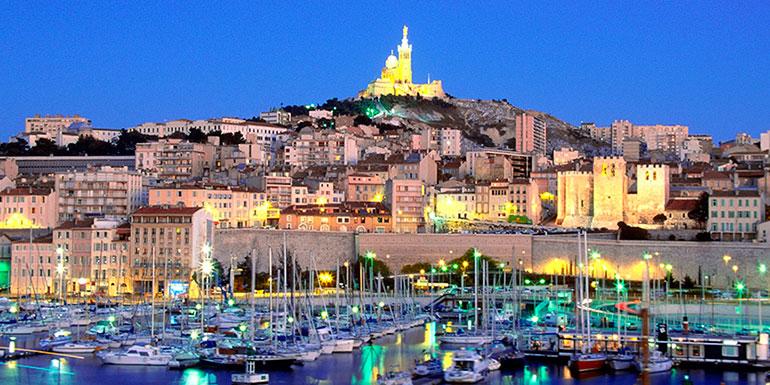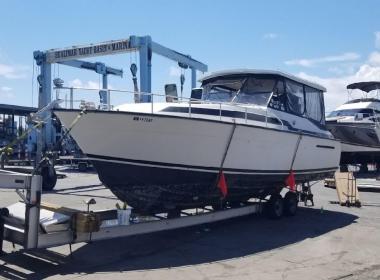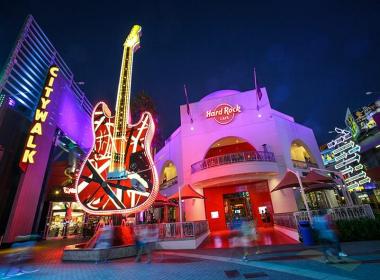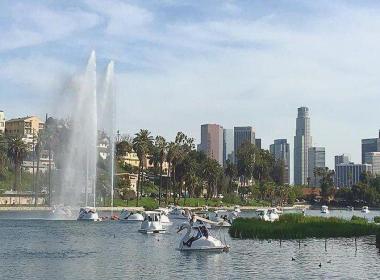
Marseille since quite a while ago had gained notoriety for shabbiness and wrongdoing. There's as yet messiness about the city today, which is no terrible thing. It loans Marseille a saucy character and gives it an inebriating dynamism and color. You can see everything in areas like Le Panier, Noailles, and La Paine and their shops, markets, and bistros. The Old Port has been being used since 600BC, and in case you're motivated by the extraordinary age of France's most seasoned city, there's a great selection of exhibition halls that will send you back as expected. With american airlines phone number, you can do the best things in Marseille.
Cuisine
Bouillabaisse is a Marseille dish that is cooked everywhere in the world. It's a fish and fish stew typically made with lean fish that have little market esteem and are better when cooked down, similar to scorpionfish, conger, and ocean robins. These are stewed with wine, olive oil, and saffron, albeit the rest of the formula differs from eatery to cafe. A piece of the custom is rural bread covered with rouille, a sort of interesting mayonnaise, and dropped into the soup. Everything goes best with white wines from the Rhône Valley or Languedoc-Roussillon. On the sweet side, you can get navettes, charming boat-formed rolls in an assortment of flavors, from anis to chocolate.
Seashores
Notwithstanding being on the Mediterranean and having 42 kilometers of coast, Marseille has never been considered as a seashore objective. During the 70s however, the Prado shoreline park was made, recovering 40 hectares of ocean and laying it with shingle and sand. What truly makes it is the perspective on the twisted white rocks toward the beginning of the Calanques toward the southeast. These are likewise man-made, and like Prado are shielded from disintegration by jetties.
Musee des Docks Romains
Marseille's old history is rich to the point that one exhibition hall isn't sufficient to show you everything to see. The Musée des Docks Romains several roads from the north side of the Old Port and covers the site of one of the world's couples of known Roman business distribution centers. They were revealed after the battle, during which various roads had been dynamited by the Germans. What will overwhelm you here are the dolia, gigantic ceramic containers as tall as completely mature grown-ups and ready to store 2,000 liters of wine or olive oil.
L'Estaque
Presently a north-western suburb of Marseille, L'Estaque is a fishing town that propelled Cézanne, Braque, and a variety of other late-nineteenth-century painters. Cezanne specifically invested a great deal of energy in L'Estaque, painting scenes of the town and ocean in various seasons. In case you're acquainted with his work you may get thrills when you review these seascapes with your own eyes. The Marseille craftsman Adolphe Monticelli was another painter connected to the town in this period, and there's a gallery in L'Estaque with the biggest single assortment of his work on the planet.
Refer to Radieuse
Worked somewhere in the range of 1947 and 1952 this apartment complex produced using concrete was the Swiss draftsman Le Corbusier's first Unité d'Habitation, a plan that would be rehashed across Europe in the post-war time frame. The thought was to move the homes, roads, and conveniences of a city into an 18-story solid square. More than 1,000 individuals actually live here, yet there's a visit bringing you into one of the reestablished unique lofts, and up to the housetop porch where you can look out over the city. Like all of Le Corbusier's structures, it's presently ensured as a UNESCO site.
Avenue Longchamp
One of Marseille's most illuminating strolls can be brought the attractive Boulevard Longchamp with its upmarket nineteenth-century houses and twin line of plane trees. The most ideal approach to do it is to head from Canebière station up towards Palais Longchamp, and the bow formed corridor and wellspring of this overwhelming nineteenth-century complex will gradually come in to see. Palais Longchamp and the recreation center and attractions around it were worked to praise the finish of the Canal de Marseille, which connected with the Durance River and finished hundreds of years of water supply issues for the city.
Stade Velodrome
Indeed, even before a heavenly renovation in the development to Euro 2016, Olympique de Marseille's home arena was one of the world's football churches. Presently it's the biggest club football arena in the country, with a limit of 67,000, and is at last shielded from the cruel Mistral wind by a fantastic undulating rooftop. Notwithstanding being a symbol, the Stade Velodrome hasn't generally been valued by the city or OM's fans, and you'll get familiar with all you require to think about this set of experiences on 60 minutes in length visit while visiting the changing areas, the most noteworthy purpose of the patios and going pitch-side.
Also read about:
Graphical representation of custom rigid boxes
Your Guide to the procedure of how to block cell phones with PTA
Usefulness of custom rigid boxes








